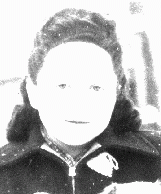You searched for: 金融游戏理财系统定制开发【TG���������@EK7676】平台包网搭建金融游戏理财系统定制开发【TG���������@EK7676】平台包网搭建39dbZbaSb9
<< Previous | Displaying results 501-510 of 619 for "金融游戏理财系统定制开发【TG���������@EK7676】平台包网搭建金融游戏理财系统定制开发【TG���������@EK7676】平台包网搭建39dbZbaSb9" | Next >>
-
Jolan (Cipi) Katz
ID CardThe oldest of eight children, Jolan grew up in a religious Jewish family. She was usually known by her Yiddish nickname, Cipi. After Jolan was born, her parents moved the family to Kisvarda, a town in northeastern Hungary. There she grew up with her four sisters and one surviving brother. Jolan had finished her schooling by 1933. 1933-39: Hitler was popular in Kisvarda. Jolan's mother wanted the family to leave Hungary before the situation worsened, but her father, who had been to the United States…
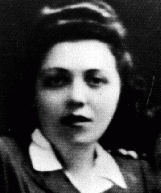
-
Maria Terez Halpert Katz
ID CardAlso known by her Yiddish name, Tobe, Terez was raised in a religious Jewish family. Her father and two brothers were rabbis. Though Terez was a promising student, she didn't pursue an advanced education because her traditional family wanted her to marry. So Terez married Menyhert Katz and moved to the town of Kisvarda [in Hungary]. There, she raised five daughters and one son; two other sons died. 1933-39: Terez's twin sons died when they were 8 months old, and she was convinced that their death was a…
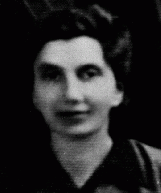
-
Izabella Katz
ID CardIzabella was one of eight children raised in a religious Jewish family in the small town of Kisvarda in northeastern Hungary. Every Friday Izabella and her brother and four younger sisters went to the library to borrow the maximum number of books for their mother. Izabella attended public schools and longed to move to a big city. 1933-39: Antisemitism was prevalent. Izabella can't count the number of times she was called "smelly Jew." Her family cringed at "Heil Hitler" speeches from Germany on the radio…
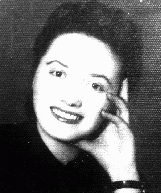
-
Leon Anderman
ID CardLeon was born to Jewish parents living near Tarnopol, then part of the Austro-Hungarian empire. During World War I, he was an officer in the Austrian army. Following his enlistment, Leon attended medical school in Vienna. After graduating in 1923, he opened a general medicine practice in Kolbuszowa, a town in south central Poland. He was one of the town's two physicians. 1933-39: Leon had never been active in Jewish affairs, but when the Germans deported Jews from their country in 1938, he felt compelled…
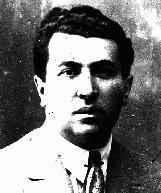
-
Susanne Ledermann
ID CardSusanne was the younger of two daughters born to Jewish parents in the German capital of Berlin. Her father was a successful lawyer. Known affectionately as Sanne, Susanne liked to play with her sister on the veranda of her home and enjoyed visiting the Berlin Zoo and park with her family. 1933-39: After the Nazis came to power in January 1933, it became illegal for Jewish lawyers to have non-Jewish clients. When Susanne was 4, her father's law practice closed down and the Ledermanns moved to the…
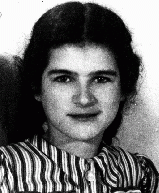
-
Franz Anton Ledermann
ID CardFranz was raised in a town in eastern Germany. The son of Jewish parents, he earned a law degree from Breslau University and a doctorate of jurisprudence from Geneva University in Switzerland. At the age of 35 he married Ilse Luise Citroen, a woman of Dutch-Jewish ancestry. The couple settled in Berlin where Franz had a successful law practice. The Ledermanns had two daughters. 1933-39: The Nazis came to power in January 1933. Ilse's Dutch relatives encouraged the Ledermanns to immigrate to the…
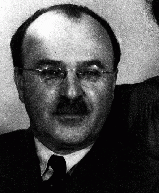
-
Ilse Luise Citroen Ledermann
ID CardIlse was one of four children born to a Dutch-Jewish father and a German-Jewish mother. In 1924 she married Franz Ledermann, a successful lawyer who was 15 years her senior. The couple made their home in Berlin, where they raised two daughters, Barbara and Susanne. 1933-39: The Nazis came to power in January 1933. While the Ledermanns were vacationing in Holland that summer, Ilse's Dutch cousin advised her not to return to Germany. Franz was reluctant to remain in Holland without a job, but when the Nazis…
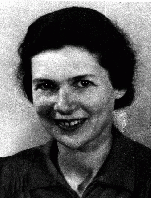
-
Gert Laske
ID CardGert was born to a Jewish family settled in northeast Berlin, known as one of the city's "red" (largely communist) districts. They lived in a large tenement building. Gert's parents were from the eastern part of Germany, which had been ceded to Poland in 1919. His father, proud of his Iron Cross, Second Class, earned in World War I, was active in an association of Jewish veterans. 1933-39: After Hitler came to power, a neighbor told Gert's mother that they couldn't greet each other on the street…
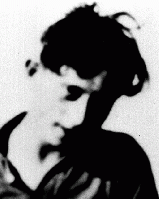
-
Onti Lazar
ID CardOnti, the youngest of five sons, was born to religious Jewish parents in northern Transylvania, a region of Romania that had belonged to Hungary until 1918. Onti's family usually called him Usher, which was the diminutive of his Yiddish name, Anschel. As a little boy, he liked collecting figurines. Though Onti grew up in a Hungarian-speaking home, he attended Romanian public schools. 1933-39: At age 13 Onti quit school to help make ends meet. He wanted to become a watchmaker, but he settled on working as…
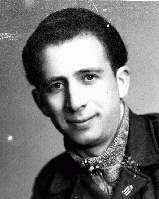
-
Felicia Karo
ID CardFelicia grew up in a Jewish family living in a predominantly Catholic neighborhood in the large, industrial city of Lodz. Her father's side of the family had lived in Poland for 400 years. He was the principal of a Jewish secondary school for boys. Known affectionately by family and friends as Lusia, Felicia attended a bilingual Jewish school in which both Hebraic and Polish subjects were taught. 1933-39: When Felicia was 12 she heard a lot of bad things about the Nazis. A Polish-born German Jewish…
